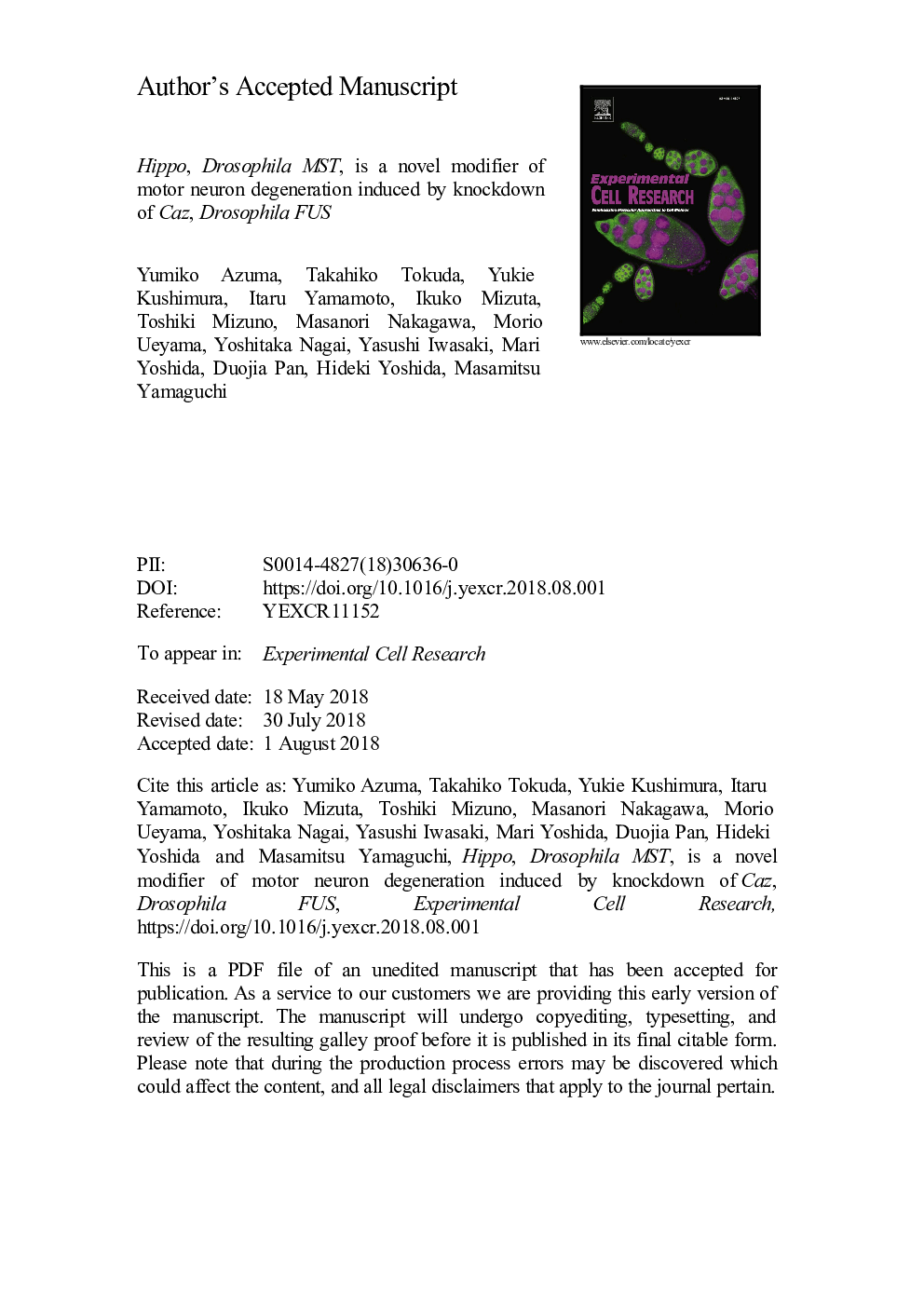| Article ID | Journal | Published Year | Pages | File Type |
|---|---|---|---|---|
| 10157668 | Experimental Cell Research | 2018 | 38 Pages |
Abstract
Mutations in the Fused in Sarcoma (FUS) gene have been identified in familial ALS in human. Drosophila contains a single ortholog of human FUS called Cabeza (Caz). We previously established Drosophila models of ALS targeted to Caz, which developed the locomotive dysfunction and caused anatomical defects in presynaptic terminals of motoneurons. Accumulating evidence suggests that ALS and cancer share defects in many cellular processes. The Hippo pathway was originally discovered in Drosophila and plays a role as a tumor suppressor in mammals. We aimed to determine whether Hippo pathway genes modify the ALS phenotype using Caz knockdown flies. We found a genetic link between Caz and Hippo (hpo), the Drosophila ortholog of human Mammalian sterile 20-like kinase (MST) 1 and 2. Loss-of-function mutations of hpo rescued Caz knockdown-induced eye- and neuron-specific defects. The decreased Caz levels in nuclei induced by Caz knockdown were also rescued by loss of function mutations of hpo. Moreover, hpo mRNA level was dramatically increased in Caz knockdown larvae, indicating that Caz negatively regulated hpo. Our results demonstrate that hpo, Drosophila MST, is a novel modifier of Drosophila FUS. Therapeutic targets that inhibit the function of MST could modify the pathogenic processes of ALS.
Keywords
MSTVAPBSALSFused in sarcoma (FUS)VCPTDP-43DAPIHRPFUsHpohippoamyotrophic lateral sclerosisSporadic amyotrophic lateral sclerosisfamilial amyotrophic lateral sclerosisamyotrophic lateral sclerosis (ALS)ALSfALSfused in sarcomaCNSCabezacentral nervous systemCazDrosophilaHorseradish peroxidaseValosin-containing protein
Related Topics
Life Sciences
Biochemistry, Genetics and Molecular Biology
Cancer Research
Authors
Yumiko Azuma, Takahiko Tokuda, Yukie Kushimura, Itaru Yamamoto, Ikuko Mizuta, Toshiki Mizuno, Masanori Nakagawa, Morio Ueyama, Yoshitaka Nagai, Yasushi Iwasaki, Mari Yoshida, Duojia Pan, Hideki Yoshida, Masamitsu Yamaguchi,
